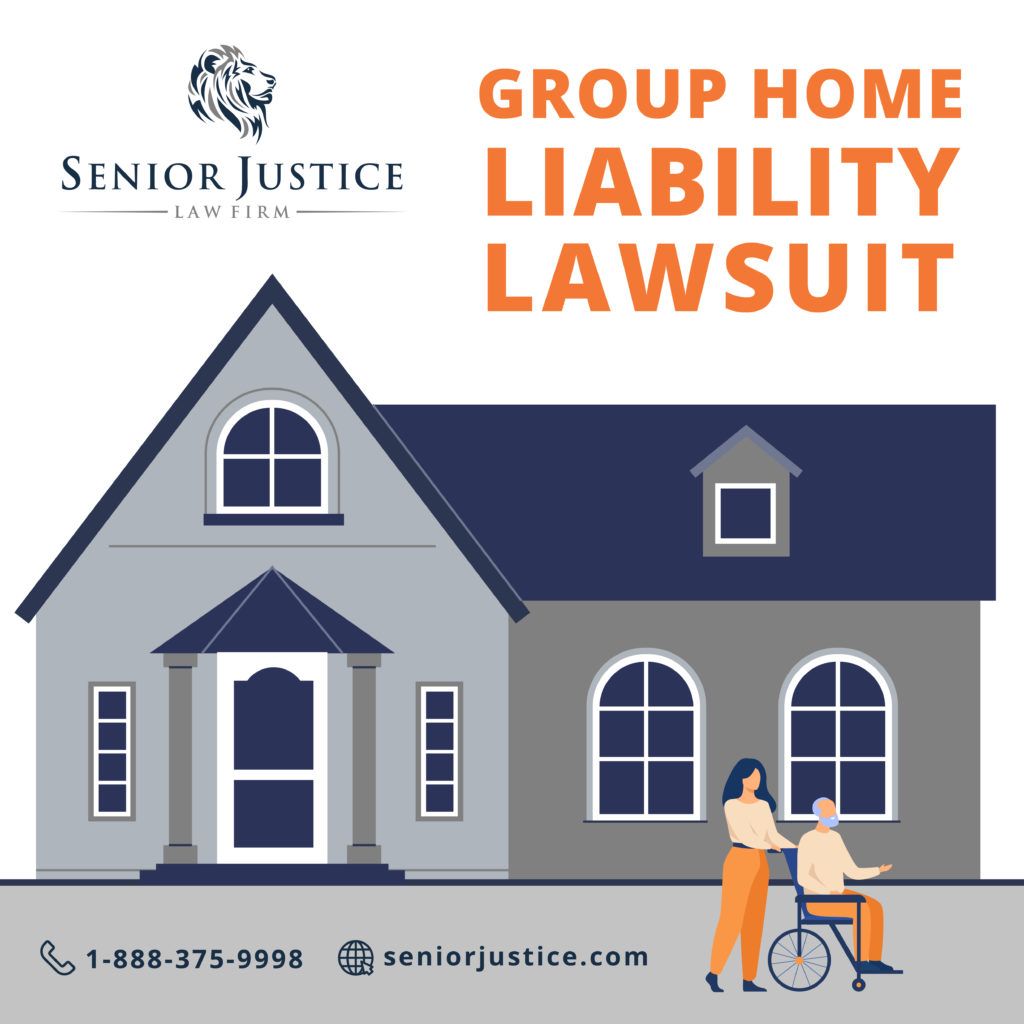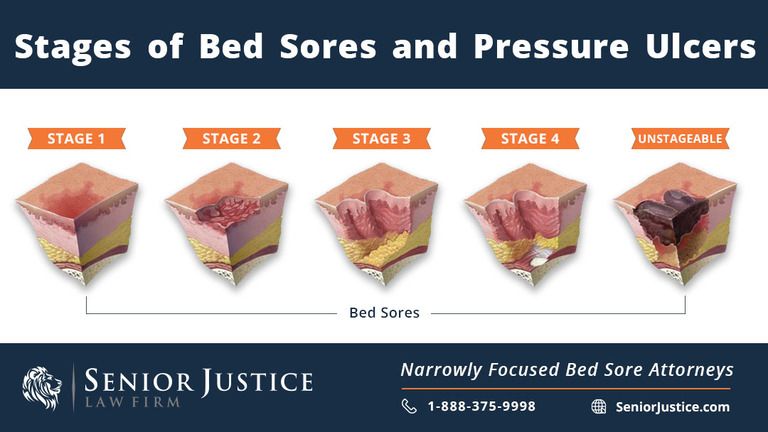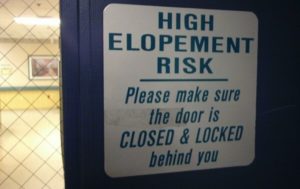Is a Group Home Liable for Assault, Rape, and Wrongful Injury of Residents?
 In the realm of assistive care, most people tend to envision nursing homes and at-home aides when they think of such services. However, group homes specifically dedicated to those with special needs are overlooked. Unfortunately, group homes are dangerously underregulated and oftentimes abuse or neglect residents. This is considered group home negligence and as a result, residents sustain injuries or even wrongful death. When a vulnerable victim is hurt or killed by another resident, or neglected to the point of serious injury, the group home can be held legally liable in a group home neglect lawsuit.
In the realm of assistive care, most people tend to envision nursing homes and at-home aides when they think of such services. However, group homes specifically dedicated to those with special needs are overlooked. Unfortunately, group homes are dangerously underregulated and oftentimes abuse or neglect residents. This is considered group home negligence and as a result, residents sustain injuries or even wrongful death. When a vulnerable victim is hurt or killed by another resident, or neglected to the point of serious injury, the group home can be held legally liable in a group home neglect lawsuit.
If you have a disabled, mentally impaired, or autistic loved one who has been wrongfully injured inside a group home, you might not know what to do next. What kinds of injuries happen in group homes? Could the event have been prevented? Do you have any rights to confront the facility? In order to understand the answers to these questions, you’ll first need to learn about how group homes work. This includes the services they provide, their legal duty to care for your loved one, and what you can do when things go wrong.
Free Group Home Negligence Case Consultation
Our attorneys have recovered millions of dollars in compensation for victims of Group Home neglect. Call Senior Justice Law Firm today for your free Group Home lawsuit consultation: 888-375-9998.
What Is a Group Home?
 Group homes are a type of living facility that provides care for people with complex needs. They’re sort of like nursing homes, except they focus less on age-related care and more on those who have chronic disabilities, cognitive health conditions, autism-spectrum diagnoses, and more. They’re also called congregate living facilities because your loved one will live with a few other people who are also being cared for.
Group homes are a type of living facility that provides care for people with complex needs. They’re sort of like nursing homes, except they focus less on age-related care and more on those who have chronic disabilities, cognitive health conditions, autism-spectrum diagnoses, and more. They’re also called congregate living facilities because your loved one will live with a few other people who are also being cared for.
Usually, group homes will have no more than five or six people in addition to the staff who care for them. However, sometimes, group homes can house up to 16 people. They might do this to try to save money on facility space or to hire fewer staff—which can be a significant problem. In general, the fewer the residents, the more personalized care they receive.
The people who live in a group home need some extra assistance with things like memory or completing day-to-day tasks. They also require supervision in order to be kept safe and healthy. Because of this, a professional is available 24 hours a day to provide care. In addition to this person, there might also be teachers, healthcare providers, and specific night shift caregivers depending on the facility.
What Kinds of Residents Are Appropriate for a Group Home?
Group homes are meant to help people who might need some extra assistance throughout the day. Some group homes will happily put different types of people together, while others specialize in a specific type of physical or intellectual challenge. Group homes must remain vigilant in which residents are allowed to reside in the facility. Since the home houses vulnerable residents, group homes must not allow aggressive residents in the home.
The most common types of residents who can benefit from care in a group home are:
Those with physical developmental disabilities
When it comes to developmental disabilities, there are two types: physical and mental. A physical developmental disability could happen as a person grows up and realizes that their bodies do not function like the statistical average. People who fall into this group include those with spina bifida, fetal alcohol syndrome, and cerebral palsy, among many others. When someone’s physical traits make everyday life more challenging, they could benefit from a group home. Caregivers can help them accomplish tasks that they may not have the motor control or flexibility for.
Those with intellectual developmental disabilities
Mental developmental disabilities occur when a person does not keep pace with their peers in reaching intellectual milestones. They may learn to talk later (or not at all), have difficulty understanding consequences and risk, or have trouble with memory. Down syndrome is one example of a common intellectual developmental disability. Group homes can help these individuals to practice life skills to live as independently as possible.
People with intellectual or physical developmental disabilities make up the largest subset of individuals who rely on group homes.
It is crucial that the group home keep out dangerous residents, like those with violent or sexually aggressive tendencies. Similarly, a group home should not allow a resident that they cannot appropriately care for. Both of these scenarios involve group home negligence if a group home allows an inappropriate resident to live in the facility.
Do Group Homes Owe a Legal Duty of Care to Their Disabled Residents?
The people who rely on a group home for their wellbeing are placed into the hands of presumed professionals. However, if you are considering living in a group home—or helping someone you love to move in—you might feel uneasy. Do group homes actually owe your family member a legal duty of care?
The good news is that yes, they do. Group homes have a legal duty to keep disabled residents safe, which comes in many forms. It might mean removing trip hazards for those with physical difficulties. It could also mean using door alarms to make sure those with intellectual challenges remain safely indoors and supervised. It means turning and repositioning an immobile resident, so that they do not develop pressure sores. It also means preventing violent or aggressive residents from living in the home, thereby precluding a resident-on-resident attack or rape.
This standard of safety is set by both federal and state organizations. These safety rules apply to all group homes, whether we are discussing a corporate-run 50 bed facility, or a single family home with 4 beds.
The Code of Federal Regulations, which collates rules from across federal departments and agencies, contains some mandatory behavior protocols for group homes. These include not only how the living areas must be laid out (e.g., residents have a private bathroom), but also how people should be treated. Group homes must assist disabled residents with eating, drinking, walking around, and using the restroom, for example.
They are also required to stay on top of injury prevention by offloading pressure in mobility compromised residents. Failure to do so can lead to bedsores, which we’ll discuss further in conjunction with other common group home injuries.
Do Group Homes Have Liability Insurance?
Group homes can be operated either as non-profit entities or as for-profit businesses. Regardless of their status as a business, it’s a smart choice for them to purchase liability insurance to cover damages in their facilities. By nature, group homes are predisposed to risk. After all, they take care of individuals who are facing additional challenges with every day tasks. If the home fails to abide by the proper protocols when offering help, they could be liable if someone gets hurt.
For this reason, essentially all group homes will carry liability insurance. This applies if someone gets hurt on their property, such as if a resident falls down. It can also come into effect for certain types of property damage. Imagine, for example, that a resident with a motor disability was trying to cook dinner. Lacking precise control of their hands, they spilled oil, which caught on fire. Liability coverage can protect the group home here as well. Additionally, most Group Homes carry insurance for attacks perpetrated by other residents, like fights or sexual assault.
Group Homes can choose more specific types of liability insurance too. They might select policies that are either catered specifically to or have riders to cover:
- Alleged abuse and molestation, by both staff or other residents
- Employment practices
- Alleged assault and battery
- Premises
- Communicable disease
Many of these elements are more topical than they first seem. Why would a group home need communicable disease coverage? Remember how many assisted living facilities were impacted by COVID-19, and imagine the toll that such an illness can take on those with disabilities. Then, it makes more sense why a group home might choose this coverage so that they’re not liable when someone gets sick.
If someone you love has been a victim of negligence or abuse in a group home, that facility’s liability coverage will likely cover the settlement amount. You deserve justice for the events that happened, and a facility can be hit with fines and punitive damages that are not covered by their insurance.
What Kind of Laws Govern Group Homes?
Both federal and state governments are in charge of determining what rules group homes must follow in their care of the vulnerable people who live there. However, some aspects remain consistent nationwide. As mentioned previously, group homes are required to keep their facilities safe according to federal law. In addition, laws governing group homes mandate reporting of certain incidents. These include:
- Deaths
- Physical assault
- Sexual assault
- Suicide attempts
- Unplanned hospital stays
- Near drowning
- Going missing
- Serious injuries
Unfortunately, problems with compliance remain a consistent issue. In fact, in some states, as many as 99% of investigated incidents were not properly reported according to legal protocols.
As a result, it is suspected that many cases of abuse and neglect are unreported. In Connecticut, for example, examinations by the Office of the Investigator General discovered that at least 82 of the 1361 deaths that occurred within group homes within the year were the result of abuse or neglect.
In addition, other laws that govern group homes include:
- That food preparation must be done in sanitary conditions, regardless of whether it is being prepared by staff or if residents can make it themselves
- That residents are protected from the environment, such as weathertight roofs, solid walls, and timely fixing of cracks and fall hazards
- That all facilities at the location are accessible for people with disabilities
Be sure to check with your local and state government for more specific rules that govern group homes in your area.
Common Group Home Lawsuit Injuries
When someone is injured or even killed in a group home because of negligent or abusive behavior, families are often left lost about what to do. In addition to reporting the incident to the proper authorities, like your local ombudsman, you can also take legal action. In fact, the federal government released data which confirms the recent wave of group home neglect related injuries.
However, before you do so, it’s helpful to learn more about how negligence lawsuits against group homes for disabled adults usually work. Some injuries are more common than others. If your loved one experienced one or more of these symptoms of abuse or neglect, know that other families have brought successful cases on the basis of these injuries.
Bed Sores

Bed sores are one of the most notorious signs of abuse or neglect in a group home. You might have heard of them called decubitus ulcers or pressure ulcers. They are not associated with any illness or disease, which means that the only time that bedsores occur is when staff are not caring for someone properly. In order to understand why, you’ll need to know more about why bedsores happen in the first place.
Your skin is full of veins that carry blood around the body. If you push on the skin, you can pinch those veins shut and stop the blood from flowing. When someone is lying down, the weight of their body is pushing on the areas of skin that are in contact with the bed or chair. Usually, that’s bony points like the hips, tailbone, and shoulder blades. Thus, in those areas, blood isn’t flowing as effectively because there’s pressure on the veins and tissues.
The problem arises when people are left like this for a long time. Usually, caretakers in group homes will help people to move around in bed every few hours if they can’t do so on their own. This makes sure that no one point of contact on the body goes without normal blood flow for an extended period of time. However, if staff are negligent in doing their jobs (or abusive in simply choosing not to), your loved one could be lying in the same position all day.
Over time, the lack of blood flow to tissues can cause them to die, because they’re not getting the oxygen and nutrients they need. At first, this damaged area will appear like a red spot or an inflamed, itchy area. As the tissue continues to die, the injury will become an open wound. If the resident’s care does not improve, that wound will continue to get bigger and deeper. The deepest pressure ulcers can go all the way to the bone and lead to life-threatening infections and extreme pain.
There is no explanation for a pressure ulcer other than inadequate group home care. If your loved one is experiencing bedsores, reach out for legal guidance right away.
Falls Due to Lack of Supervision and Assistance
Group homes by nature contain more people with disabilities on average than other living situations. However, this does not mean that regular falls should be an expected part of life. Group home residents can fall on accident just like anyone else; that being said, facilities are responsible for keeping areas safe. This means removing trip hazards, keeping the floors in good repair, and more.
Studies have shown that people with autism spectrum disorders are 54% more likely to end up visiting the emergency room than their neurotypical peers. Group homes must adapt to this increased risk, and failure to do so can leave them liable for injuries or even death sustained as a result of a fall.
After all, falls can result in serious harm. Broken bones and blunt force trauma are just some possibilities, each of which can cause long-term difficulty. If someone in a group home hits their head during a fall, they could suffer a brain bleed that may be life-threatening. Even in people who struggle with coordination and motor skills, falls should not be a regular part of their life at a group home.
Sexual Assault by Other Residents

Unfortunately, your loved one’s caretakers are not the only people who can cause them harm in a group home. Other residents may pose a risk, including the chance of a sexual assault encounter. There are many reasons that an individual in a group home does not—or cannot—consent to sexual behavior. If a resident assaults another resident, the group home is still liable for the harm caused.
Studies show that disabled adults are more than three times as likely to be sexually assaulted. In 44% of these cases, the person perpetrating the crime was a non-family member who knew the victim well, such as other residents in a group home. A news story from Arizona swept the nation in 2019 after a woman at Hacienda Healthcare, a group facility, gave birth to a healthy baby boy despite being in a coma for the previous ten years. Consistent care and attention from staff do not preclude sexual assault in homes for disabled adults, and the facilities are responsible for these incidents, whether staff or other residents are responsible.
Physical Assault by Other Residents
Like sexual assault, physical assault is a possibility in group homes. In fact, adults with disabilities are almost four times as likely to suffer from physical assault than their peers who do not live in a facility. This can happen for numerous reasons, including staff getting upset at an uncooperative resident and using more force than is appropriate. However, one of the most frequent sources of physical assault in group homes comes from other residents.
It’s fairly easy to see why residents can have a hard time getting along. These adults, who often need additional encouragement to navigate their emotions and predict consequences, may struggle to engage appropriately with others. They might grab, pull on, or try to hit other residents as a result of intellectual disabilities that make controlled interaction a challenge.
However, even if a physical assault happens because of another resident’s behavior, the group home is still responsible. Staff should be helping residents exist safely and amicably. Failure to do so leaves them legally liable. Knowing that more than 50% of all group home residents have experienced physical abuse at some point, it is important to stay vigilant for signs.
Elopement and Wandering Out of the Facility
 The term “elopement” means that a resident of a controlled facility leaves without warning. Between 25% and 50% of those diagnosed with autism spectrum disorder are prone to wandering. Group homes must take active measures to prevent residents from leaving the facility without supervision. When residents are able to leave, they are prone to severe injury and death; often, they become victims of traffic accidents or drowning. In fact, those with ASD are 40 times more likely to drown than those who do not have an autism spectrum diagnosis.
The term “elopement” means that a resident of a controlled facility leaves without warning. Between 25% and 50% of those diagnosed with autism spectrum disorder are prone to wandering. Group homes must take active measures to prevent residents from leaving the facility without supervision. When residents are able to leave, they are prone to severe injury and death; often, they become victims of traffic accidents or drowning. In fact, those with ASD are 40 times more likely to drown than those who do not have an autism spectrum diagnosis.
Some of the things that group homes can do to prevent elopement are installing alarms on doors and requiring key cards in order to open doors. Unfortunately, some facilities rely on off-label prescription medication uses to sedate residents—or even using restraints to keep them in place. These are not acceptable means of controlling group home residents, and your family member may be a victim of abuse if they are subjected to this treatment.
Weight Loss, Malnutrition, and Dehydration
In group homes, studies have indicated that residents are commonly not receiving the nutrition that they need. Sometimes this happens because the facility doesn’t have staff with the right knowledge to craft healthy, balanced meals. Other times, malnutrition can arise if residents are not assisted in the ways they need. If their disability causes difficulty with eating or drinking, they might need help, like consuming mashed food or using special utensils. When facilities do not adhere to these adjusted consumption strategies, residents might eat and drink less than they need—or not at all.
As part of their duty of care, group homes are legally required to ensure that residents receive nutritious, safely prepared meals and drinks. In many states, significant weight loss must also be reported as part of resident documentation. If someone you love is living in a group home and showing signs of sudden or significant weight loss, a legal team can help you confront the facility about this behavior.
Group Home Lawsuits Improve Care
When a family is confronted with the reality that their loved one has been victimized in a group home, their first reactions typically range from shock and horror to feelings of overwhelm and fear. For many, the thought of engaging in what they perceive as a lengthy, complicated, and costly legal battle is more than they’re willing to consider.
However, it’s very important to know that bringing a lawsuit against a negligent or abusive group home can make positive changes—and even save lives. When a facility is faced with both legal fees and potential penalties or damages for its abusive behavior, it often amends its practices. Since for-profit locations frequently operate on razor-thin profit margins, any expenses that cut into their income will be eliminated as much as possible.
If you bring a lawsuit against a group home and force them to pay damages, they are likely to change how they offer their care in the future to avoid further fees. In this way, not only does your lawsuit secure the compensation that your family deserves, but it also results in group homes changing their administration. In the future, the same deficiencies that your loved one experienced may be resolved, and others will not have to face the abuse that your family did. Your lawsuit can be a service to other disabled adults who rely on that group home for their care.
A skilled legal team can help to streamline this step for you, taking the cumbersome litigation process off of your shoulders as much as possible.
Free Group Home Lawsuit Consultation
At Senior Justice Law Firm, our firm focus is suing facilities for abusing or neglecting vulnerable residents. This is all that we do.
Our attorneys have successfully handled Group Home liability claims involving physical and sexual assault, deep bedsores, and unsupervised wandering (escaping) out of the Group Home.
To learn more about your legal rights following a tragedy inside a group home, call the experienced and compassionate attorneys at Senior Justice Law Firm. We provide completely free case consultations and we have years of experience holding group homes accountable for neglecting residents.
To receive your free group home lawsuit evaluation, call our law firm at (888) 375-9998, live chat with our office now, or submit your case facts below. We look forward to helping you along your journey to justice.

